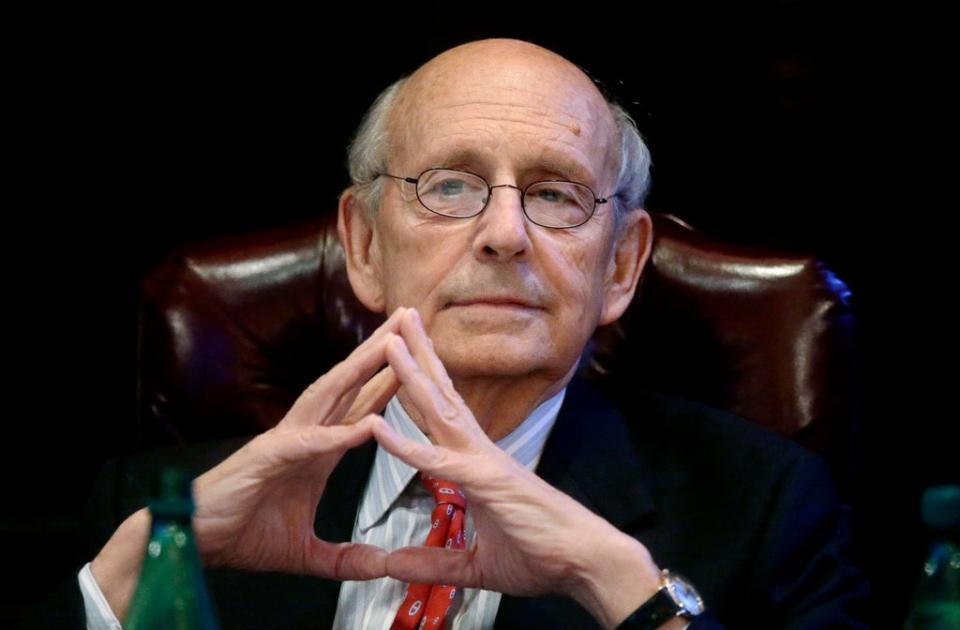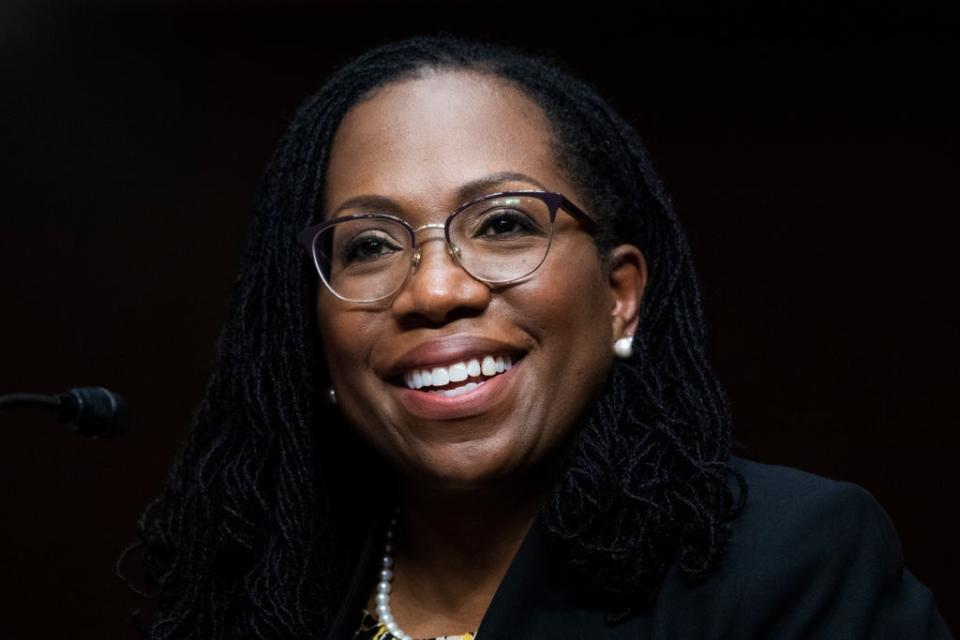Ketanji Brown Jackson: Could Merrick Garland’s replacement be Joe Biden’s first Supreme Court pick?
- Oops!Something went wrong.Please try again later.
- Oops!Something went wrong.Please try again later.
- Oops!Something went wrong.Please try again later.
- Oops!Something went wrong.Please try again later.
- Oops!Something went wrong.Please try again later.
- Oops!Something went wrong.Please try again later.
- Oops!Something went wrong.Please try again later.
- Oops!Something went wrong.Please try again later.
- Oops!Something went wrong.Please try again later.
- Oops!Something went wrong.Please try again later.
When President Joe Biden announced a slate of judicial nominations on 29 March last year, one nomination to the US Court of Appeals for the District of Columbia stood out to veteran court-watchers.
Mr Biden’s pick for the seat once held by current US Attorney General Merrick Garland was US District Judge Ketanji Brown Jackson, a Florida native and double Harvard graduate (undergraduate and law school) who had been named to the federal bench by then-president Barack Obama in 2013.
The choice of Ms Jackson for the vacancy created by Mr Garland’s move to the Justice Department would make her the only Black woman judge on an appellate court that has produced three of the nine current Supreme Court justices – Clarence Thomas, Brett Kavanaugh, and Chief Justice John Roberts – and from which former chief justices Warren Burger and Fred Vinson as well as associate justices Wiley Blount Rutledge, Antonin Scalia and Ruth Bader Ginsburg served before being named to the supreme court.
Now, with Justice Stephen Breyer set to step down at the end of the court’s current term, Mr Biden is in a position to fulfill his 2020 campaign promise to name a Black woman to serve on the highest court in the United States. And Ms Jackson, who was commissioned as a circuit court judge on 17 June last year, is now considered a frontrunner to be Mr Biden’s choice to replace the court’s longest-serving liberal justice.
Ms Brown has been under consideration for a Supreme Court seat before. When Justice Scalia passed away unexpectedly in early 2016, she was one of five candidates whom then-president Barack Obama interviewed before choosing Mr Garland as his pick to succeed Scalia.
Ironically, Mr Breyer’s retirement while the Senate is in Democratic hands means she – or any of Mr Biden’s court picks – will not suffer the fate of Mr Garland, who never received so much as a hearing on his nomination.
After she appeared before the Senate Judiciary Committee last April, only one Republican, Texas Senator John Cornyn, voted to advance her nomination to the Senate floor. Only three from the GOP side – Sens Susan Collins, Lindsey Graham, and Lisa Murkowski – voted to confirm her to the DC Circuit.
Here is what else you need to know about Ms Brown.

She is related to a former top House Republican
Since 1999, Ms Brown has been married to Georgetown University Hospital’s chief of gastrointestinal surgery, Dr Patrick Brown.
Dr Brown has a brother, William, who is married to a woman named Dana Little, whose sister Janna is married to former Speaker of the House Paul Ryan.
She worked in journalism before attending law school
According to a questionnaire submitted to the Senate Judiciary Committee, Ms Jackson spent 1992 and 1993 working as a staff reporter and researcher for TIME magazine.

She once clerked for the Supreme Court justice she would replace if nominated
From 1999 to 2000, Ms Jackson served as a clerk to Justice Breyer. She also served as a law clerk for First Circuit Court of Appeals Judge Bruce Selya from 1997 to 1998, and to Massachusetts District Judge Patti Sarlis from 1996 to 1997.
She would be the only member of the Supreme Court to have served as a public defender
Many of the sitting justices on the high court served in prosecutorial roles before being named to the bench. Justice Sonya Sotomayor spent several years as a New York City assistant district attorney after graduating from Harvard Law School. Justice Samual Alito served for three years as New Jersey’s top federal prosecutor before then-president George HW Bush nominated him to the bench in 1990. And Justice Brett Kavanaugh served as a deputy independent counsel during Kenneth Starr’s years-long investigation of Bill Clinton.
But Ms Jackson would be the first Supreme Court justice in recent memory to have spent time representing indigent criminal defendants, having served as an Assistant Federal Defender in DC from 2005 to 2007.
She has angered Republicans with rulings in high-profile cases involving former president Donald Trump
As a district court judge, Ms Jackson made headlines when she issued a November 2019 ruling ordering former White House counsel Don McGahn to testify before the House Judiciary Committee.
Mr McGahn had argued that as a high-level aide to Mr Trump, he enjoyed “absolute immunity” from being compelled to testify in the committee’s investigation into whether Mr Trump obstructed former special counsel Robert Mueller’s probe into Russian interference in the 2016 election.
Ms Jackson wrote in her opinion that “absolute immunity from compelled congressional process simply does not exist … because compulsory appearance by dint of a subpoena is a legal construct, not a political one, and per the Constitution, no one is above the law”.
In December, she was one member of a three-judge panel who upheld District Judge Tanya Chutkan’s opinion holding that Mr Trump could not prevent the House select committee investigating the 6 January insurrection from obtaining White House records over which Mr Biden had declined to assert executive privilege.

